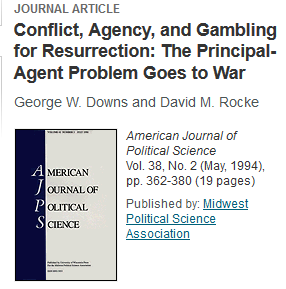Trump& #39;s call for an immigration ban raises a key question: in the face of #COVID19, will Trump pursue policies popular with the majority of voters or will he simply double down on his base?
Short answer: base
Long answer: [THREAD] https://twitter.com/realDonaldTrump/status/1252418369170501639">https://twitter.com/realDonal...
Short answer: base
Long answer: [THREAD] https://twitter.com/realDonaldTrump/status/1252418369170501639">https://twitter.com/realDonal...
This question is another way to think about the Tweet I sent yesterday https://twitter.com/ProfPaulPoast/status/1252240504583938049">https://twitter.com/ProfPaulP...
So what is popular with voters right now?
Answer: Social Distancing, something the @ChicagoCouncil (among others) has been tracking closely. https://twitter.com/ProfPaulPoast/status/1250440676447121409">https://twitter.com/ProfPaulP...
Answer: Social Distancing, something the @ChicagoCouncil (among others) has been tracking closely. https://twitter.com/ProfPaulPoast/status/1250440676447121409">https://twitter.com/ProfPaulP...
Obviously, work in American Politics could help us think about the policies Trump will pursue while facing a disaster during an election year
https://www.journals.uchicago.edu/doi/abs/10.1017/S0022381611000843">https://www.journals.uchicago.edu/doi/abs/1...
https://www.journals.uchicago.edu/doi/abs/10.1017/S0022381611000843">https://www.journals.uchicago.edu/doi/abs/1...
But international relations scholars are also interested in this topic https://www.google.com/books/edition/The_Logic_of_Political_Survival/1PlRlcgQdpMC?hl=en&gbpv=1&printsec=frontcover">https://www.google.com/books/edi...
A key reason IR scholars care about the electoral incentives of a leader is because we think those incentives influence foreign policy.
There are several strands of the IR literature focused on electoral incentives...
...the extensive "Audience Costs" literature: the idea that leaders will be punished for flip-flopping on a foreign policy pronouncement https://twitter.com/ProfPaulPoast/status/1134422125798989825">https://twitter.com/ProfPaulP...
...the "Diversionary War" literature: the idea that a leader will, say, start a war abroad in order to take attention away from a crisis at home
...the "Leader Deception" literature: the claim that leaders will deceive in order to bring about an otherwise unpopular foreign policy gambit https://www.mitpressjournals.org/doi/abs/10.1162/ISEC_c_00017?journalCode=isec">https://www.mitpressjournals.org/doi/abs/1...
...And -- perhaps most relevant to thinking about Trump & #COVID19 -- the "leader culpability" literature: https://www.cambridge.org/core/journals/american-political-science-review/article/deciders-dilemma-leader-culpability-war-outcomes-and-domestic-punishment/509114969EBDD6FAC6DA9323744CDFB4">https://www.cambridge.org/core/jour...
The idea is that leaders who brought their country into a war are "culpable" and will have little incentive to end a war if it will end badly.
This is because their citizens will punish them for starting a losing battle.
This is because their citizens will punish them for starting a losing battle.
What does this have to do with COVID19? You can hear from the author herself! Go to the 52 minute mark of this episode of "Ask a Political Scientist" (hosted by @jonesrooy & @caveatnyc)
https://www.youtube.com/watch?v=_el7DLUAo6g">https://www.youtube.com/watch...
https://www.youtube.com/watch?v=_el7DLUAo6g">https://www.youtube.com/watch...
For me, a key factor is Trump& #39;s PERCEPTION of his culpability.
If Trump perceives himself as "culpable", then, consistent with Croco& #39;s research, one would expect him to try hard to stop the virus and protect public health.
If Trump perceives himself as "culpable", then, consistent with Croco& #39;s research, one would expect him to try hard to stop the virus and protect public health.
But his comments in support of the "anti-social distancing" minority suggest otherwise https://twitter.com/realDonaldTrump/status/1251169217531056130">https://twitter.com/realDonal...
Also, we& #39;ve seen Trump do a lot to deflect blame: such as saying that it& #39;s the "Chinese Virus" (and claiming that he& #39;s always taken it seriously)... https://twitter.com/realdonaldtrump/status/1240243188708839424">https://twitter.com/realdonal...
...and even going as far as putting the "economic hardship" blame on on governors https://www.businessinsider.com/trump-coronavirus-blaming-governors-reelection-tactic-2020-4">https://www.businessinsider.com/trump-cor...
This suggests that he does not perceive himself as culpable and is actively trying to ensure that he is not perceived by others as culpable.

 Read on Twitter
Read on Twitter


